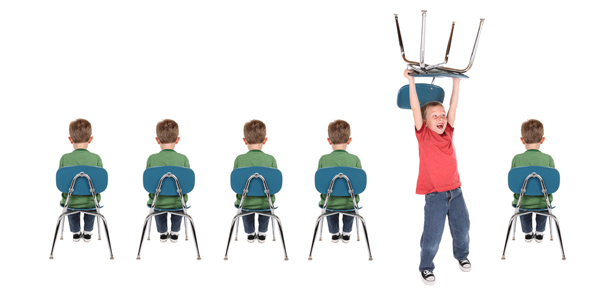By Joanna Audi, Psychomotor Therapist & Family Coach
As parents, we all want the very best for our children – top-notch education, wholesome meals, enriching experiences, and a nurturing environment that fosters their harmonious development.
However, the journey of parenthood is laden with challenges, and as our little ones grow and evolve, they inevitably face hurdles like illness, mood swings, and moments of restlessness. In our pursuit of creating an ideal life for them, we sometimes find that reality doesn’t always align neatly with our aspirations.
One particular challenge often encountered on this journey arises when school calls to express concerns about our child’s performance. They may mention constant fidgeting, restlessness, and difficulty focusing in class, triggering a cascade of questions and doubts within us. Is our child alright? Are we, as parents, somehow falling short? These questions often prompt us to seek explanations or offer explanations ourselves. Perhaps our child simply isn’t engaged in school, doesn’t quite connect with their science teacher, easily becomes bored, or occasionally experiences fatigue.
However, the prevailing question that tends to echo in clinics is: Could this be ADHD?
While ADHD is indeed a possibility, it’s essential to consider another potential explanation: psychomotor agitation.
We will break down the key differences between ADHD and psychomotor agitation in simpler terms:
Imagine your child showing restlessness, like constant pacing, fidgeting, or wringing their hands. This restlessness usually happens when they’re feeling emotionally distressed or anxious. It’s like they have extra energy that they don’t know how to channel. This can be linked to mood changes, anxiety, or sudden changes in the environment of the child.
Now, think about a child who finds it really hard to pay attention, often acts hyperactive, and makes impulsive decisions without thinking them through. These behaviors don’t just show up now and then; they persist and can make everyday activities challenging. ADHD is a neurodevelopmental disorder that professionals diagnose by following specific guidelines found in the DSM-5. It primarily affects children, but it can stick around into adulthood.
ADHD is quite different from psychomotor agitation when we consider what causes it, how long it lasts, and how it’s diagnosed.
To determine if your child has ADHD or is experiencing psychomotor agitation, it’s crucial to consult professionals like clinical psychologists, psychomotor therapists, occupational therapists, and speech and language pathologists. They use their expertise to conduct assessments and evaluations, helping identify the underlying causes of your child’s behaviors.
Remember, sometimes restlessness and agitation can also have medical reasons, and getting to the bottom of it may involve a thorough diagnostic process. So, if you’re concerned about your child’s behavior, seeking expert guidance is a crucial step toward understanding and supporting them effectively.
